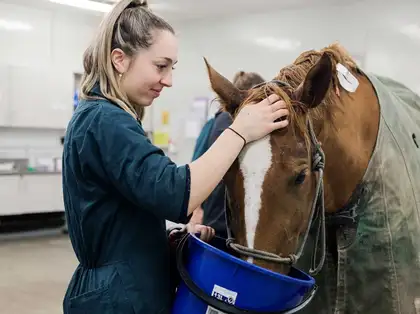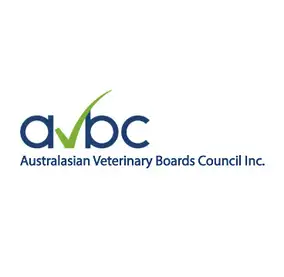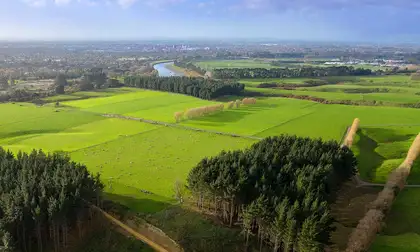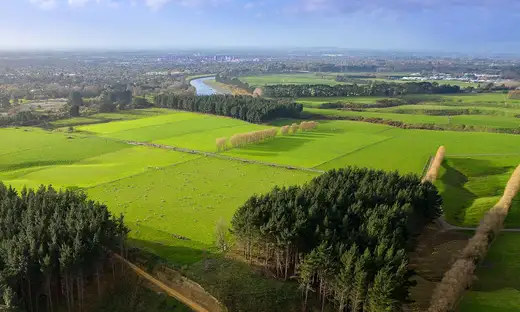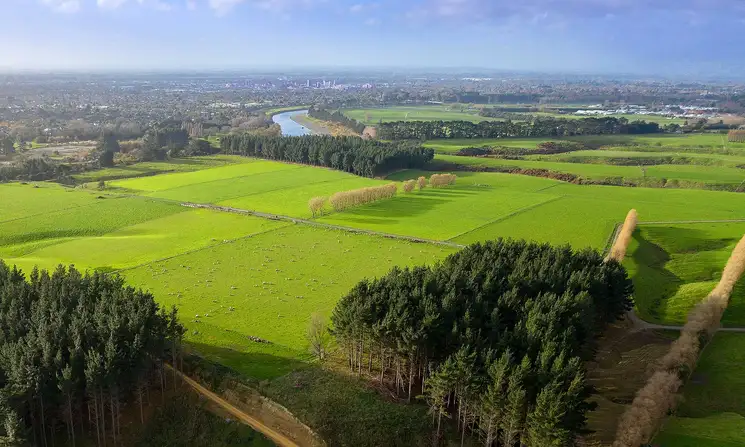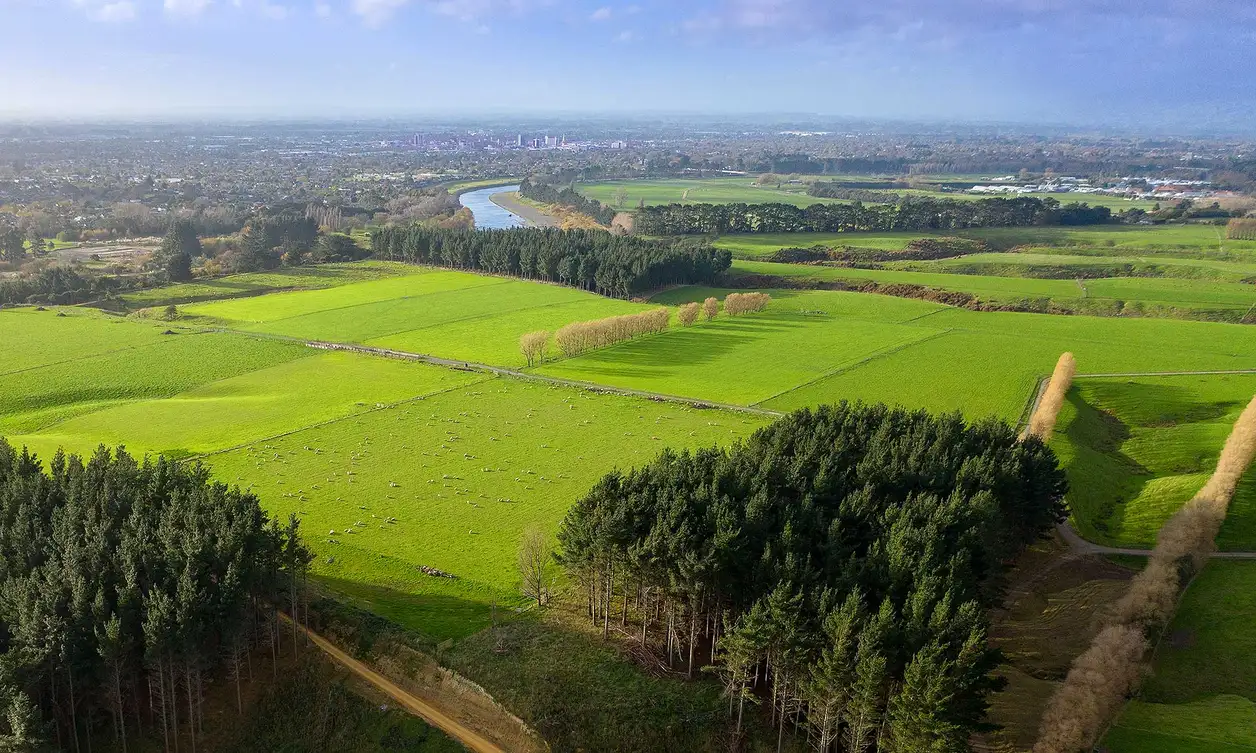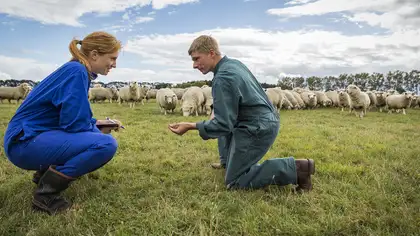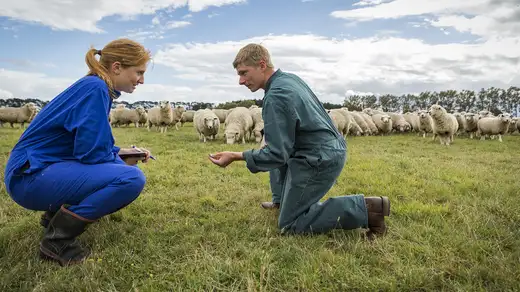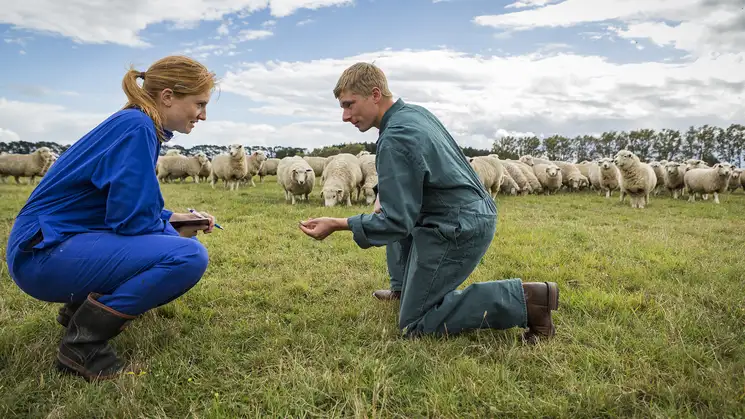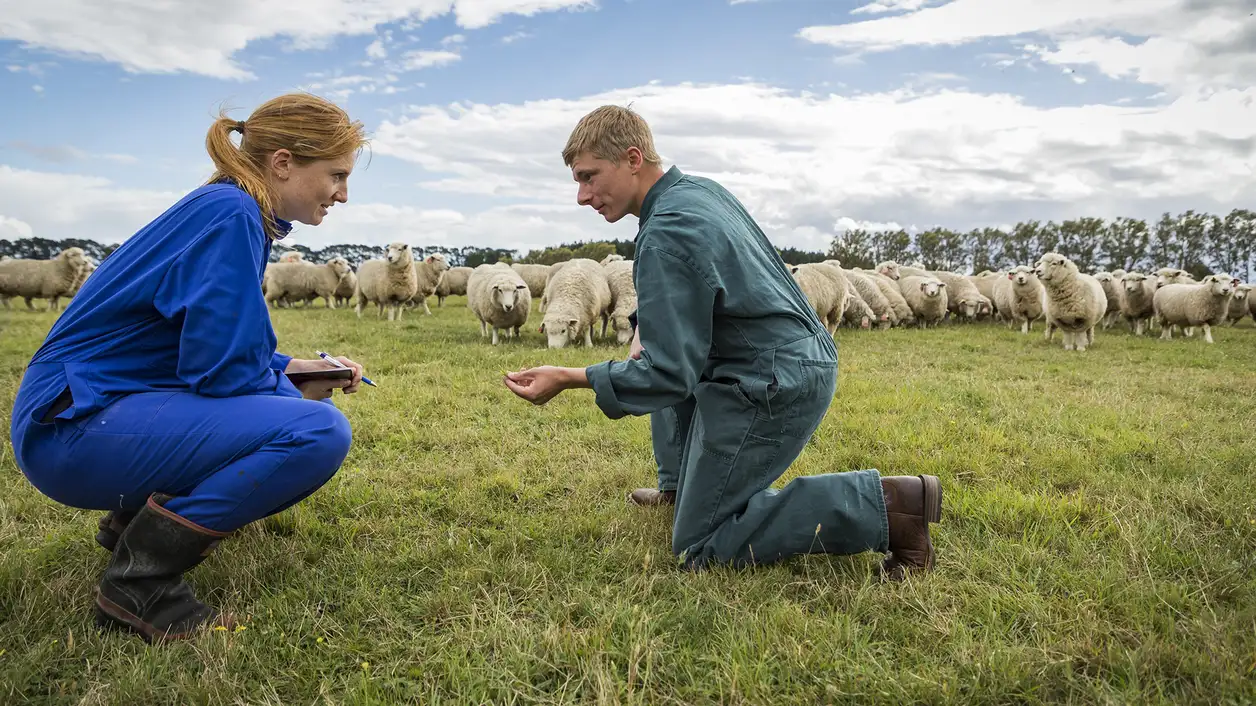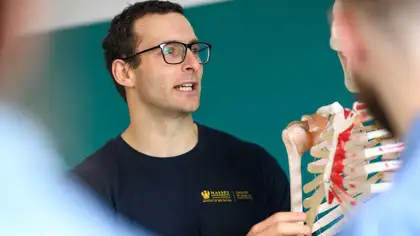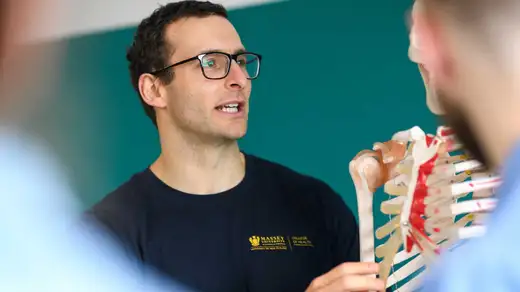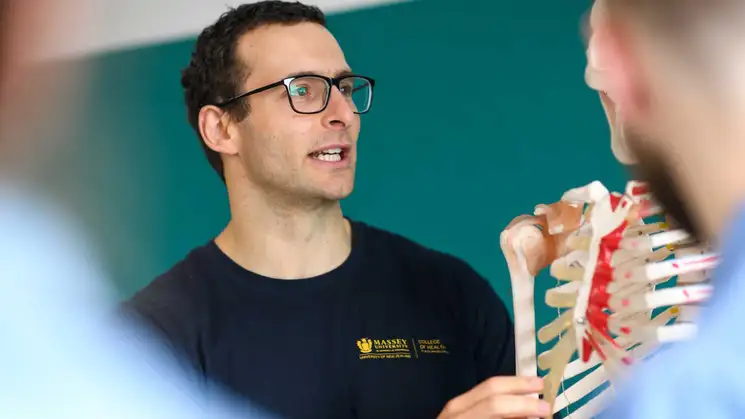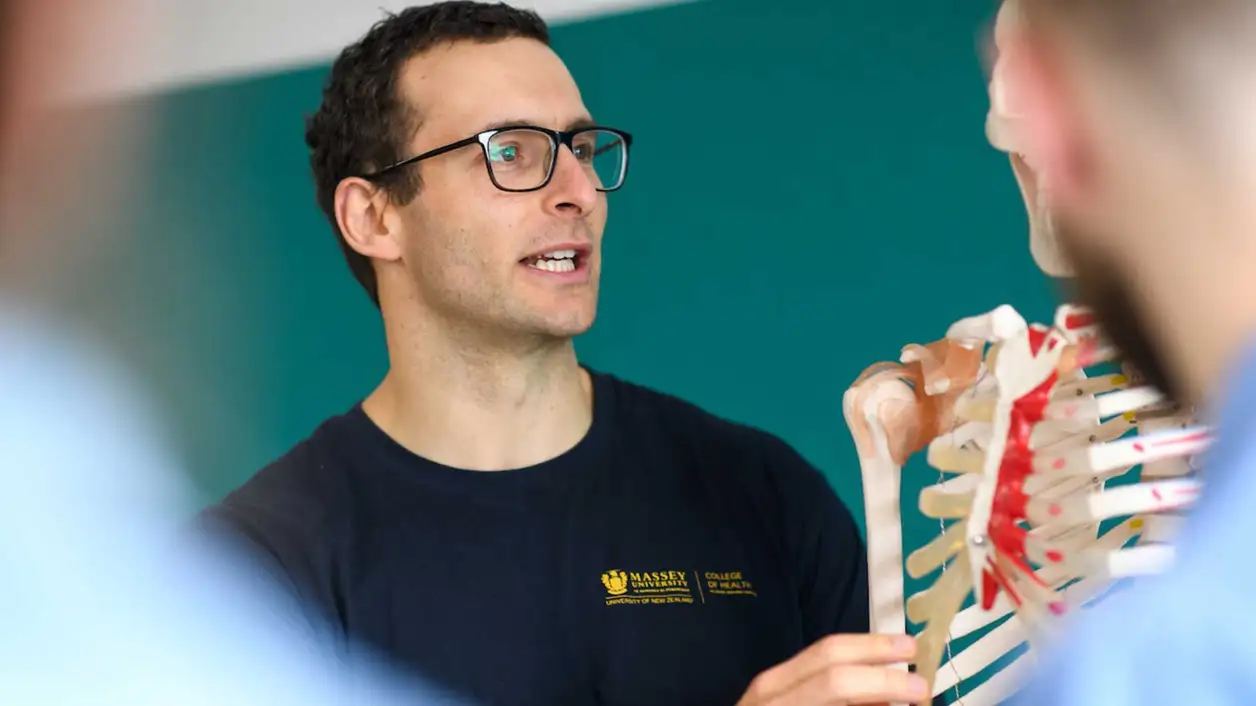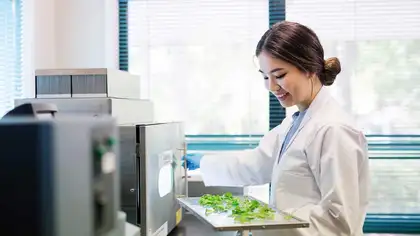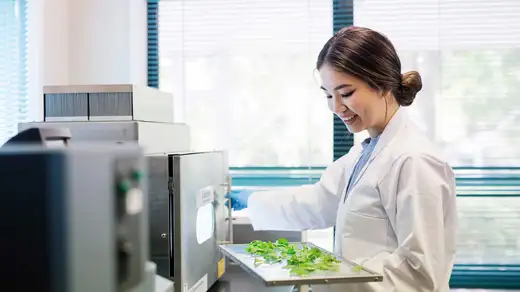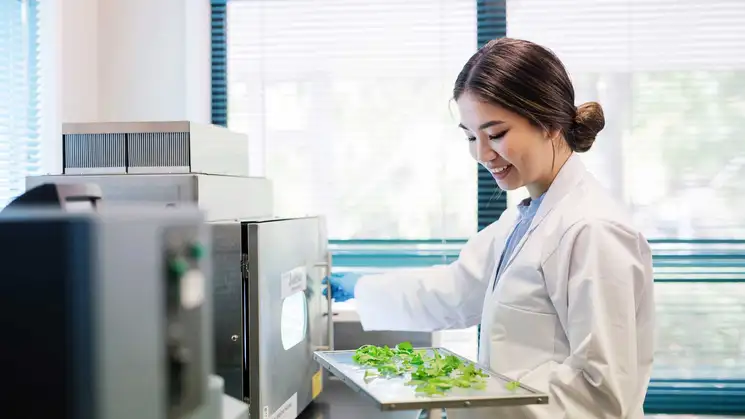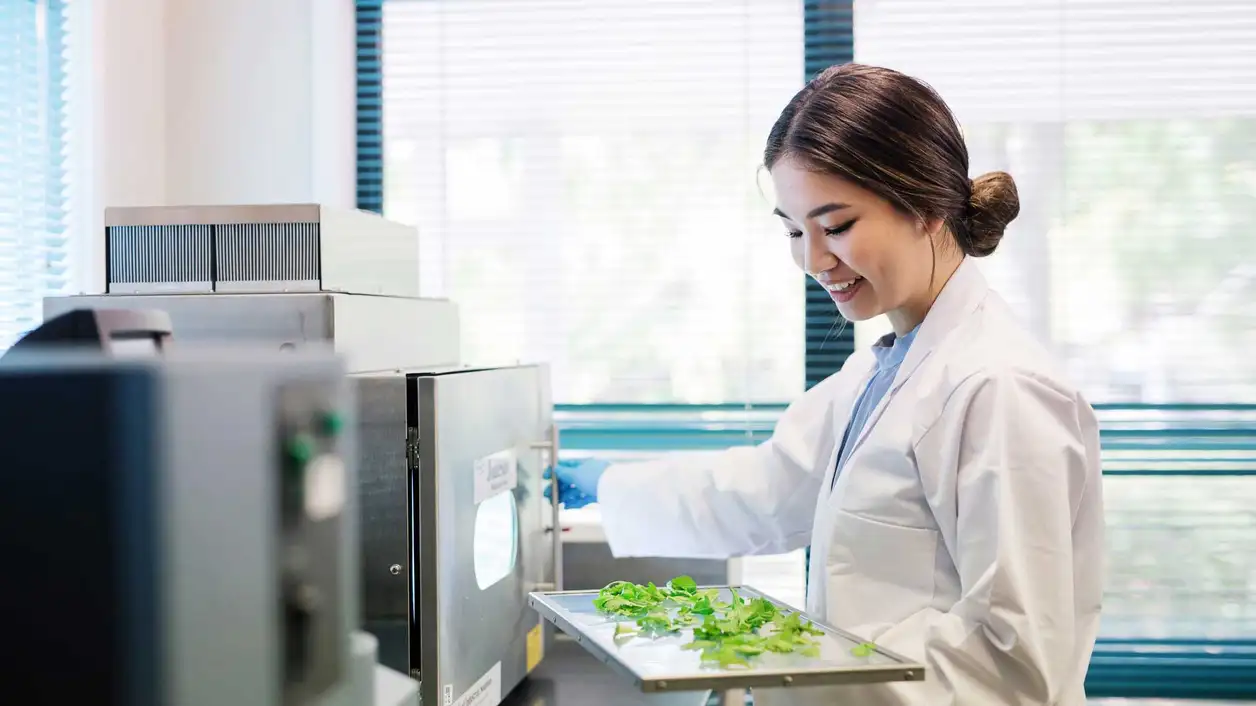First-rate vet school
QS ranks us in the world's top 50 vet schools.
World-class facilities
Learn in top facilities such as our teaching hospital, equine clinic, pet emergency centre, and new hospital for farm animals.
Globally recognised
As one of our veterinary science graduates, you'll be qualified to work globally – in Australia, the UK, Canada, the US and more.
Learn by doing
Get hands-on experience in labs, field trips, and practical projects that focus on solving real-world problems.
Overview
Join a world-class veterinary programme – we rank in the world's top 50 vet schools.
Learn from lecturers and researchers with expertise in areas such as companion animal (pet) surgery, farm animal health and public health. Get hands-on experience at Massey vet hospitals, including specialist clinics for cats and dogs, farm animals, horses and native birds. Master new skills while working with a wide range of animals, using state-of-the-art equipment.
Gain experience in your preferred area of interest with final-year work placements. Graduate with a qualification recognised nationally and internationally.
Veterinary science is a good fit if you:
- do well in sciences and maths
- want a challenging and rewarding career working with animals – and the people who look after them
- like thinking analytically and solving problems.
Vet courses cover:
- animal behaviour and welfare
- clinical examination, and medical and surgical treatment options, for a wide range of animals
- diagnostic techniques and tools
- normal and abnormal animal structure and function
- preventing common diseases and optimising health for pets and farm animals
- real-life veterinary cases and scenarios.
For qualified vets, we also offer further study in topics such as:
- dermatology (skin)
- epidemiology (spread and control of diseases)
- oncology (cancer)
- ophthalmology (eyes)
- surgery.
How to study veterinary science
Discover what we offer if you’re interested in veterinary science – whether you’re coming to university for the first time, changing direction or returning to advance your study or career.
Undergraduate study
Bachelor's degrees
Bachelor of Veterinary Science – BVSc
By studying veterinary science at Massey University, you’ll join a world-leading veterinary qualification that will qualify you to work as a veterinarian in many different areas.
Postgraduate study
Master's degrees
Master of Veterinary Medicine – MVM
Join Massey’s Master of Veterinary Medicine, a world-leading online education qualification that attracts students from all around the globe.
Master of Veterinary Studies – MVS
Progress your professional development by gaining expertise in a specific area of veterinary science.
Postgraduate diplomas
Postgraduate Diploma in Veterinary Science – PGDipVSc
The Postgraduate Diploma in Veterinary Science is a stepping-stone to a master’s degree.
PhD and other doctoral degrees
Doctor of Philosophy – PhD
A prestigious research qualification that demonstrates your ability to carry out independent and original research in your chosen field.
Relevant research areas at Massey
Discover research expertise, projects and initiatives relating to veterinary science at Massey.
Global One Health programmes to help tackle epidemics and pandemics
EpiCentre – our veterinary epidemiology training and research centre
What our students say
“I thoroughly enjoyed my 5 year degree at Massey. I made lifelong friends while learning essential knowledge and skills which have helped me to start my new career.”
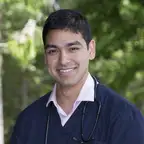
“The MVM team is highly supportive, friendly and professional and are eager to help you succeed at every stage.”

Our facilities
You'll have access to a wide range of first-class facilities when you study with us.
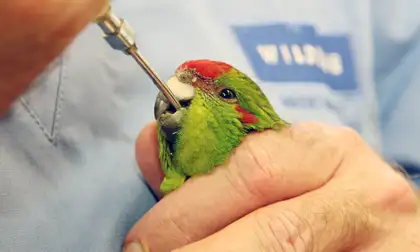
Wildbase Hospital
A specialist hospital for wildlife, with equipment and facilities including:
- five patient wards to separate prey from predatory species
- intensive care and isolation wards
- surgery suite
- endoscopes
- portable radiographic unit.
Students can assist with or observe procedures.
Location: Manawatū campus
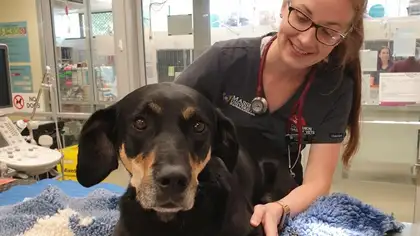
Companion Animal Hospital
From cats and dogs to birds and reptiles, the hospital cares for sick and injured pets of all shapes and sizes. This includes:
- health checks
- spays and neuterings
- vaccinations.
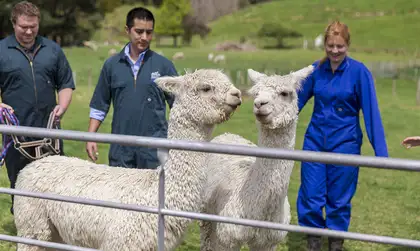
Large Animal Teaching Unit (LATU)
This is a dedicated facility to help train Massey veterinary students in aspects of large animal handling and examination across a range of species.
The facility includes a small working farm with horses, cattle, sheep and camelids. A range of veterinary procedures are taught as students progress through their course.
Location: Manawatū campus
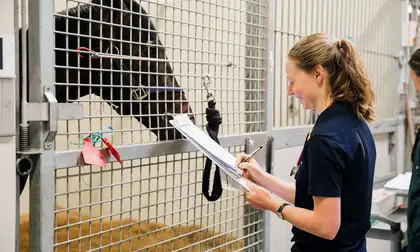
Equine Veterinary Clinic
The clinic offers a broad range of medical and surgical expertise. It includes:
- patient boxes and paddocks
- surgery
- separate isolation unit.
Students can assist with or observe procedures.
Location: Manawatū campus
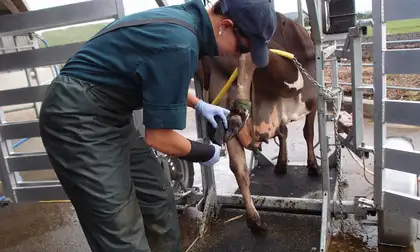
Farm Services Clinic
Expert care for livestock and lifestyle animals such as alpacas, goats and poultry. Our new hospital includes:
- patient boxes and yards
- surgery
- separate farm animal isolation unit.
Students assist with or observe procedures.
Jobs in veterinary science
Massey vets work everywhere from clinics to farms, agribusiness companies to zoos, sanctuaries to the great outdoors. Some vets work with local or international charities, or become researchers with expertise in areas such as:
- understanding disease transmission between animals and people
- optimising animal health, welfare and production.
Jobs prospects are good, as farming and agribusiness are important to Aotearoa New Zealand, as are conservation and eco-tourism. Not to mention our household pets...
Veterinary careers include:
- clinical veterinarians (also called vets), who work with a wide range of species
- epidemiologists, who study the spread and control of animal diseases
- pathologists, who study animal diseases and other health conditions
- veterinarians who advise the government, assure the safety of food we eat, or develop animal welfare policies
- veterinary researchers.
Annual salary ranges for jobs
New graduates can earn between $75,000 to $105,000 a year. Experienced vets, including those running their own business, can earn up to $220,000.
Vet – $75,000 to $220,000
Becoming a vet
Massey's Bachelor of Veterinary Science (BVSc) qualifies you to work as a vet. We're the only university in Aotearoa New Zealand to offer this degree.
Our BVSc is internationally recognised and accredited, so Massey vet graduates can work in countries such as Australia, Canada, South Africa, the UK and United States.
It's competitive to enter BVSc. Here are the steps involved.
1
Entry requirements: We recommend a good background in sciences and maths. For New Zealand students, this means 14 to 20 credits of NCEA Level 3 chemistry and biology, and 14 to 20 credits in Level 2 maths and/or physics. You also need to do work experience or observation time in a veterinary clinic before the pre-selection semester.
2
Pre-selection phase: Enrol in prerequisite courses in the first semester, also called pre-vet. This is open entry, so long as you meet university entrance requirements.
3
Professional phase: Based on your performance in the pre-selection semester, you may be offered a place in the remaining nine semesters of the BVSc.
Salary ranges disclaimer
Indicative pay rates are:
- in New Zealand dollars
- based on careers.govt.nz data.
Which veterinary qualification?
Examples of where our qualifications may take you.
| Jobs | Examples of what you could study |
|---|---|
| Clinical veterinarian |
Bachelor of Veterinary Science Master of Veterinary Studies for vets keen to specialise |
| Epidemiologist, also called animal disease investigator | Master of Veterinary Studies |
| Pathologist | Master of Veterinary Studies (Veterinary Pathology) |
Accreditations and rankings
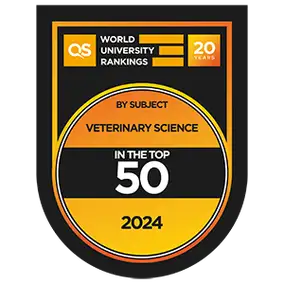
QS Ranking - Veterinary Science
The Veterinary School is ranked by QS (Quacquarelli Symonds) as 21st in the world for veterinary science, the highest ranked school in the southern hemisphere.
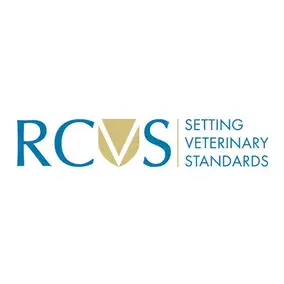
Royal College of Veterinary Surgeons (RCVS)
Accredited. Last evaluation: 2021. Next evaluation: 2028.
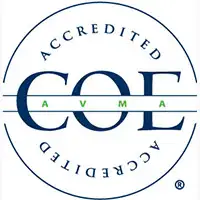
American Veterinary Medical Association (AVMA)
Massey’s BVSc is accredited by the American Veterinary Medical Association Council on Education with minor deficiencies; graduates can work in North America. Last evaluation: 2021. Next evaluation: 2028.
Get an information guide
Download our guide to find out more about studying veterinary science at Massey.
